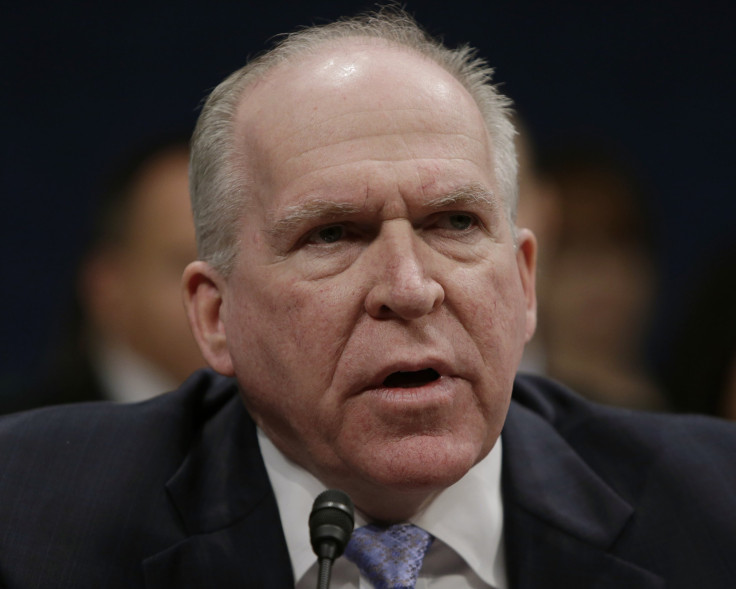CIA’s Brennan: ‘Unknowable’ Whether Torture Was Necessary To Obtain Intelligence

CIA Director John Brennan on Thursday defended the agency’s role in the detention and often brutal interrogation of terror suspects in the wake of the Sept. 11, 2001, terrorist attacks amid calls for his resignation after the release of a blockbuster Senate report on the interrogation program. But Brennan admitted the agency made mistakes in executing its mission under the program and said that a number of its employees overstepped the bounds of legal conduct, employing techniques that were not permitted under federal law.
“There were times when CIA officers exceeded the policy guidance that was given and the interrogation techniques that were deemed lawful,” he said during televised remarks at CIA headquarters in Langley, Virginia. “It is something that is regrettable, but as an institution we are not perfect. We are made up of individuals.”
The Tuesday release of the Senate Intelligence Committee report on torture and brutal interrogation tactics at “black site” detention facilities around the world reignited long-simmering anger over the CIA program. The report presents evidence that suggests information obtained via “enhanced interrogation techniques,” including waterboading, sleep depravation and rectal feedings, could have been gained via less harsh methods.
But Brennan said that such claims are unfair and that there is no way to determine whether the use of the much-maligned EITs was necessary for the attainment of such intelligence.
“There was useful intelligence, very useful and actionable intelligence, that was obtained from individuals that had been subjected to EITs,” he said during his Thursday remarks. “Whether that information could have been obtained using other methods is unknowable.”
Brennan painted a portrait of an agency in the aftermath of 9/11 that was tasked with the monumental endeavor of protecting the country from follow-up attacks, doing everything it could to fulfill that vital mission. He said the Department of Justice approved the tactics at the time, but noted that “the legal advice under which they were authorized has since been revoked.”
“To be successful, CIA officers knew they needed speed, courage, resources and, most importantly, intelligence,” he said, adding, “There were numerous credible and worrisome reports about a second and third wave of attacks across the United States … This is the backdrop against which the agency was directed to" detain terror suspects and get intelligence from them.
He called “the process undertaken by the committee” in compiling the report “flawed,” noting that the committee did not interview CIA employees former or current. But he admitted that a limited number of tactics employed by CIA personnel “were not authorized, were abhorrent,” and said that “acknowledging our mistakes and absorbing the lessons of the past is fundamental to this agency’s mission.”
His remarks came as outcry over the report continues to spread around the world, leading to criticism of leaders and governments of nations that hosted CIA black-site facilities in the wake of 9/11. That criticism has spread to Brennan himself, as a number of prominent voices have called on him to quit, including U.S. Sen. Mark Udall, a Colorado Democrat who has frequently criticized the nation’s national security and intelligence apparatuses.
“Director Brennan and the CIA today are continuing to willfully provide inaccurate information and misrepresent the efficacy of torture. In other words, the CIA is lying,” Udall said Monday, the Guardian reported.
© Copyright IBTimes 2025. All rights reserved.





















